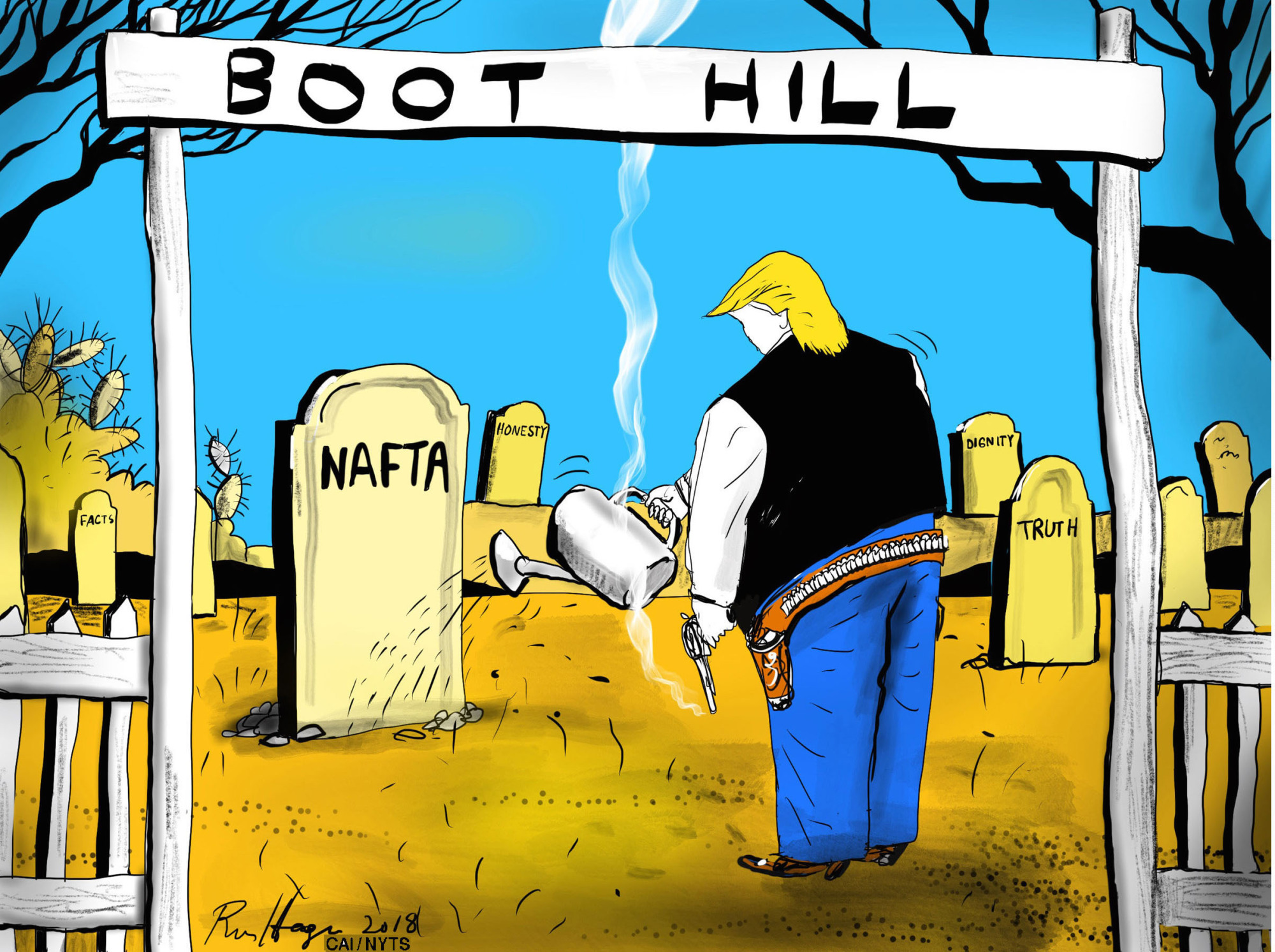When the North American Free Trade Agreement took effect in 1994, it was widely regarded — by friend and foe alike — as an ambitious experiment in economic engineering. To advocates, it promised the benefits of stronger economic growth for its three member countries: Canada, Mexico and the United States. To its adversaries, it threatened the loss of well-paid U.S. manufacturing jobs to low-wage countries.
Even before he was president, Donald Trump was among NAFTA's fiercest critics. During the campaign, he pledged to overhaul or terminate it. Now he has fulfilled his promise, unveiling a new, tentative U.S.-Mexico trade agreement. Critics say it will raise car prices, while Trump and his allies argue that it will promote good U.S. jobs.
Trump's next task is to coerce or cajole Canada into joining the agreement and then killing the NAFTA label. "I like to call this deal the United States-Mexico Trade Agreement. I think it's an elegant name," he said in a phone conversation with Mexican President Enrique Pena Nieto. "I think NAFTA has a lot of bad connotations for the United States, because it was a rip-off."

















With your current subscription plan you can comment on stories. However, before writing your first comment, please create a display name in the Profile section of your subscriber account page.